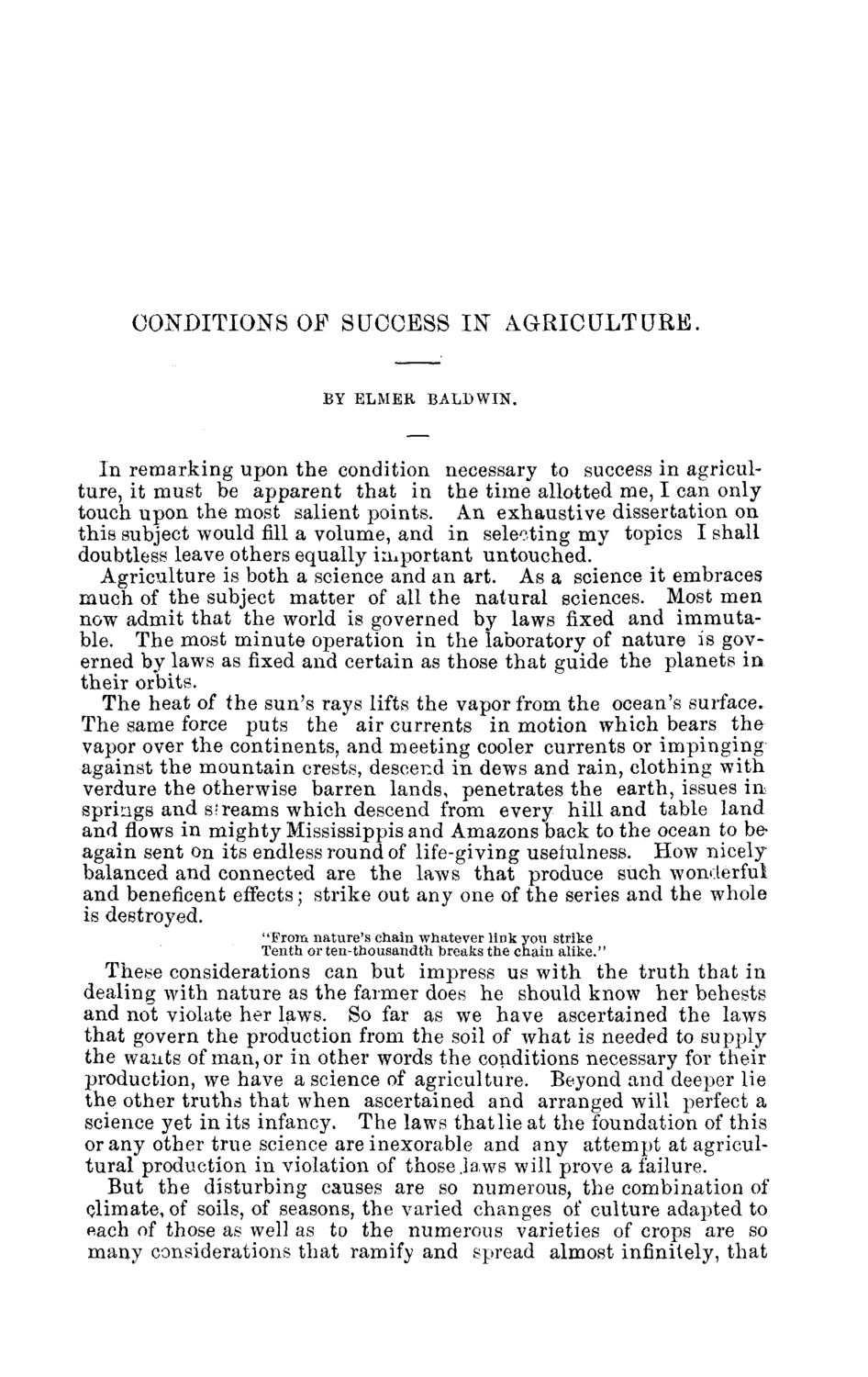| |
| |
Caption: Board of Trustees Minutes - 1876
This is a reduced-resolution page image for fast online browsing.

EXTRACTED TEXT FROM PAGE:
CONDITIONS OF SUCCESS I N A G R I C U L T U R E . BY E L M E R BALDWIN. In remarking upon the condition necessary to success in agriculture, it must be apparent that in the time allotted me, I can only touch upon the most salient points. An exhaustive dissertation on this subject would fill a volume, and in selecting my topics I shall doubtless leave others equally important untouched. Agriculture is both a science and an art. As a science it embraces much of the subject matter of all the natural sciences. Most men now admit that the world is governed by laws fixed and immutable. The most minute operation in the laboratory of nature is governed by laws as fixed and certain as those that guide the planets in their orbits. The heat of the sun's rays lifts the vapor from the ocean's surface. The same force puts the air currents in motion which bears the vapor over the continents, and meeting cooler currents or impinging against the mountain crests, descend in dews and rain, clothing with verdure the otherwise barren lands, penetrates the earth, issues in springs and streams which descend from every hill and table land and flows in mighty Mississippis and Amazons back to the ocean to be* again sent on its endless round of life-giving uselulness. How nicely balanced and connected are the laws that produce such wonderful and beneficent effects; strike out any one of the series and the whole is destroyed. "From nature's chain whatever link you strike Tenth or ten-thousandth breaks the chain alike." These considerations can but impress us with the truth that in dealing with nature as the farmer does he should know her behests and not violate her laws. So far as we have ascertained the laws that govern the production from the soil of what is needed to supply the wants of man, or in other words the conditions necessary for their production, we have a science of agriculture. Beyond and deeper lie the other truths that when ascertained and arranged will perfect a science yet in its infancy. The laws that lie at the foundation of this or any other true science are inexorable and any attempt at agricultural production in violation of those jaws will prove a failure. But the disturbing causes are so numerous, the combination of climate, of soils, of seasons, the varied changes of culture adapted to each of those as well as to the numerous varieties of crops are so many considerations that ramify and spread almost infinitely, that
| |